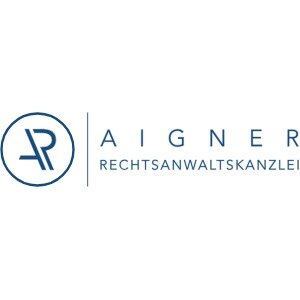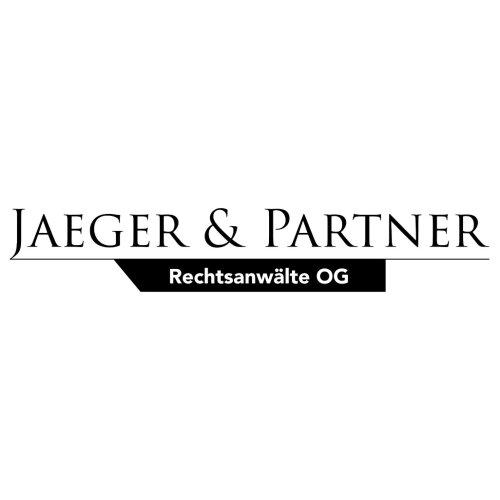Best Conveyancing Lawyers in Linz
Share your needs with us, get contacted by law firms.
Free. Takes 2 min.
Free Guide to Hiring a Real Estate Lawyer
List of the best lawyers in Linz, Austria
About Conveyancing Law in Linz, Austria
Conveyancing is the legal process of transferring ownership of real estate from one person or entity to another. In Linz, Austria, conveyancing involves several steps and strict legal requirements that must be followed to ensure a valid and secure transfer of property rights. Notaries or specialized conveyancing lawyers (Rechtsanwälte) typically oversee this process, ensuring compliance with Austrian civil law and local regulations in Upper Austria, where Linz is located. These professionals handle drafting and reviewing of contracts, coordinate with land registries, and safeguard the interests of all parties involved in property transactions.
Why You May Need a Lawyer
There are many situations where seeking the assistance of a lawyer is strongly recommended in the conveyancing process in Linz. These can include:
- Buying or selling a residential or commercial property
- Transferring property between family members through inheritance or gifting
- Addressing issues with property boundaries, easements, or rights of way
- Dealing with foreign ownership regulations or cross-border transactions
- Resolving disputes over title or prior encumbrances
- Ensuring lawful clearance of mortgages or other charges against the property
- Handling complex property structures such as condominiums or building rights
A lawyer provides valuable legal oversight throughout the conveyancing process. They can identify potential risks, draft necessary documents, represent your interests in negotiations, and help you understand your legal rights and obligations during the transaction.
Local Laws Overview
Austrian property law is governed by the Allgemeines Bürgerliches Gesetzbuch (ABGB - Austrian Civil Code), as well as specific federal and state laws. In Linz and Upper Austria, key aspects relevant to conveyancing include:
- Written Contracts: All property transfers require a formal written contract, known as a Kaufvertrag (purchase agreement), which must be notarized for validity.
- Land Registration: Ownership changes are not legally binding until the transfer is registered in the Grundbuch (land register). This step ensures public notice and protects rights.
- Due Diligence: It is common practice to review the land register for encumbrances such as mortgages, building restrictions, rights of way, and zoning issues.
- Foreign Ownership: Special rules may apply for foreign nationals or companies seeking to acquire property in Austria, including potential approval requirements from local authorities.
- Taxes and Fees: Buyers and sellers must account for taxes such as real estate transfer tax (Grunderwerbsteuer) and registration fees (Eintragungsgebühr).
The involvement of a notary or a specialized property lawyer is generally required to ensure all legal formalities are satisfied.
Frequently Asked Questions
What is conveyancing?
Conveyancing is the legal process of transferring property ownership from a seller to a buyer, including preparing contracts, conducting checks, and registering the transaction with the land register.
Who is responsible for preparing the purchase contract in Linz?
Typically, a lawyer or notary appointed by the buyer or seller prepares the purchase agreement to ensure proper legal standards and registration requirements are met.
Is it mandatory to use a notary in a property transaction?
Yes, Austrian law requires notarization of property transfer contracts and entries in the land register, making notaries indispensable to the process.
How long does the conveyancing process usually take?
The timeframe can vary, but on average, completing all legal steps and registering the transaction with the land registry in Linz may take four to eight weeks.
Can foreigners buy property in Linz?
In general, EU citizens can purchase property without restrictions. Non-EU citizens may need to seek approval from local authorities and follow additional regulations.
What costs are involved in conveyancing?
Costs usually include legal fees, notary fees, real estate transfer tax (3.5 percent of the purchase price), land registry fees (1.1 percent), and any mortgage registration fees or agent commissions.
What documents are needed for conveyancing?
Commonly required documents include the purchase agreement, proof of identity, land registry extract, proof of purchase price payment, and, if applicable, loan or mortgage documentation.
What is the role of the land register (Grundbuch)?
The Grundbuch provides public access to all rights, encumbrances, and ownership details about real properties in Austria, guaranteeing transparency and legal certainty.
Can the conveyancing process be handled remotely?
Some steps, such as document review or negotiation, may be conducted remotely. However, physical or certified presence is generally needed for signing and notarization.
What happens if problems arise during conveyancing?
If any issues such as title disputes, unpaid charges, or hidden defects are discovered, your lawyer can negotiate solutions, request clarification or, if needed, pursue legal remedies to protect your interests.
Additional Resources
For further information and support regarding conveyancing in Linz, consider the following local and national resources:
- Upper Austrian Bar Association (Oberösterreichische Rechtsanwaltskammer) for finding a specialized lawyer
- Notarial Association of Austria (Österreichische Notariatskammer) for information on notarial services
- Land Register offices (Bezirksgericht Linz) for registration inquiries
- City of Linz administration for planning and zoning information
- Federal Ministry of Justice (Bundesministerium für Justiz) for legal guidance on Austrian property law
Next Steps
If you need legal help with conveyancing in Linz, Austria, start by gathering all documents regarding the property and the intended transaction. Consult with a local lawyer or notary specializing in real estate as early as possible in the process. Clearly outline your objectives and concerns so they can provide tailored advice. Your legal representative will assist you through contract drafting, negotiations, due diligence, and registration, ensuring a smooth and secure property transfer. If you are unsure where to find a qualified professional, reach out to local legal associations or consult the resources outlined above.
Lawzana helps you find the best lawyers and law firms in Linz through a curated and pre-screened list of qualified legal professionals. Our platform offers rankings and detailed profiles of attorneys and law firms, allowing you to compare based on practice areas, including Conveyancing, experience, and client feedback.
Each profile includes a description of the firm's areas of practice, client reviews, team members and partners, year of establishment, spoken languages, office locations, contact information, social media presence, and any published articles or resources. Most firms on our platform speak English and are experienced in both local and international legal matters.
Get a quote from top-rated law firms in Linz, Austria — quickly, securely, and without unnecessary hassle.
Disclaimer:
The information provided on this page is for general informational purposes only and does not constitute legal advice. While we strive to ensure the accuracy and relevance of the content, legal information may change over time, and interpretations of the law can vary. You should always consult with a qualified legal professional for advice specific to your situation.
We disclaim all liability for actions taken or not taken based on the content of this page. If you believe any information is incorrect or outdated, please contact us, and we will review and update it where appropriate.














